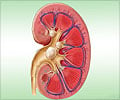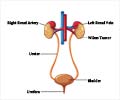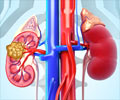There are a variety of ways that kidney tumors grow, new research has indicated.

Solving that puzzle could have implications for the diagnosis and treatment if kidney cancer, which has 35 per cent mortality rate and is becoming more common. Despite advances in early detection and treatment, the mortality rate hasn't changed in decades.For the first time, researchers at St. Michael's Hospital have looked at multiple different levels of changes at the same time. Dr. George Yousef, a laboratory pathologist, said researchers have looked at three different ways cancer cells can grow and survive: •the tumour can amplify (or replicate) its chromosomes, the packages of DNA and proteins found in cells•the tumour can alter a process that controls the on-off switch for genes needed for cell growth and differentiation, known as methylation•or the tumour can drive gene activation through another geneDr. Yousef said they found that looking at all these changes in the same setting simultaneously can provide a much better understanding of tumour behaviour and how the apparently different changes can produce the same results. His research appears in the journal Cancer Research, one of the leading journals of in the field of cancer.Using a high resolution microarray there were also able to identify very specific regions of the chromosomes where genetic alterations happen in kidney cancer to a much higher resolution than before. Combining information from chromosomal changes, methylation and gene expression provided a much clearer understanding of the mechanism of kidney cancer development. "Now we look at the mechanism rather than the individual change," Dr. Yousef said. "Regardless of the apparent differences of the tumour, the outcome will be the same. Eventually, we may be able to target treatment based on the 'mechanism' that is affected rather than the individual genes that are changed."
Source-Eurekalert















